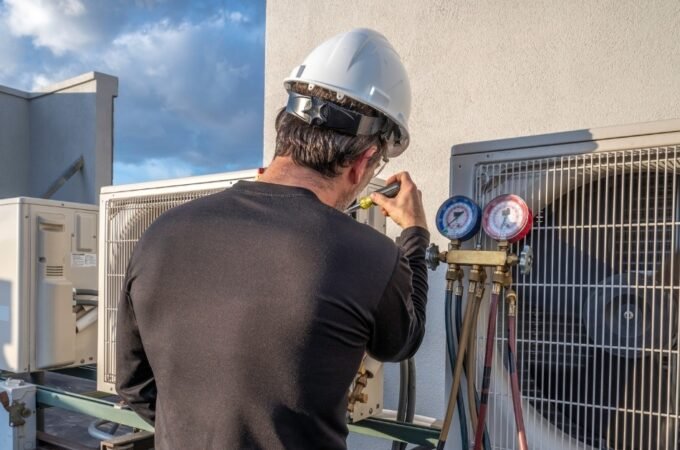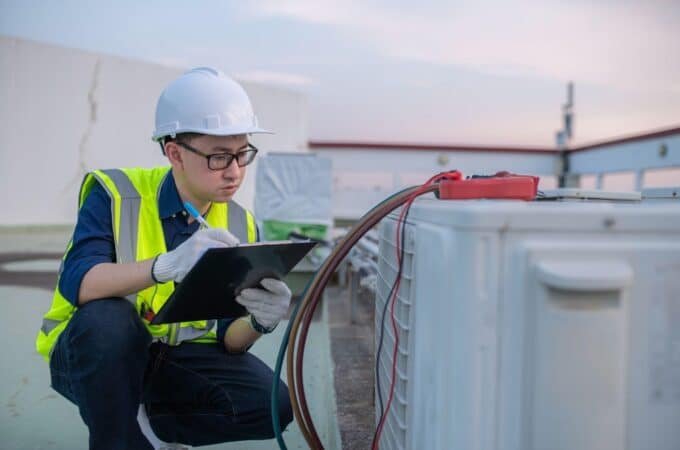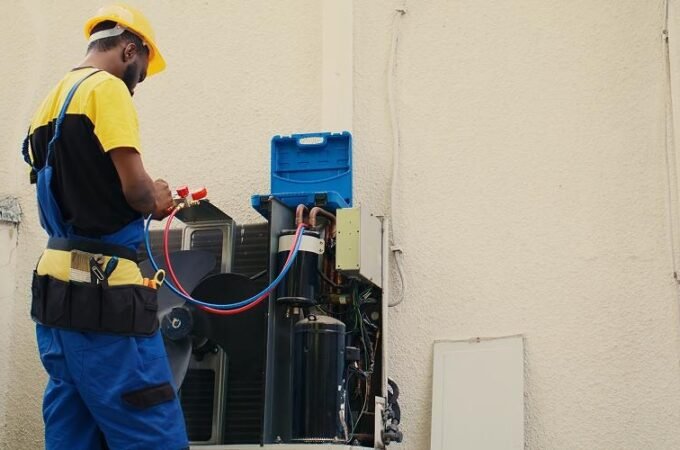
Smart Strategies For HVAC Professionals: Staying Competitive In An Ever-Changing Market
Table of Contents
ToggleAdapting To Change: Key Trends Driving The HVAC Industry
The HVAC landscape is experiencing a profound transformation as new market pressures and customer expectations reshape best practices. Every year, rapid advances in building codes, air quality regulations, and climate awareness force businesses to update their approaches to product offerings and service delivery. Residential and commercial clients no longer seek cookie-cutter temperature control solutions—they want comfort, efficiency, and the latest technology. Contractors seeking to earn trust and repeat business increasingly specialize in indoor air quality audits, smart system integrations, and energy-efficient upgrades. Experts recommend offering value-added services such as HVAC warranty programs to strengthen client loyalty and mitigate potential service anxieties. These options boost customer confidence in significant investments, create long-term revenue streams, and distinguish businesses from competitors with a traditional, transactional mindset.
Multiple sources confirm that adaptation is key for business growth. Prominent trends include rising customer awareness of energy consumption, stricter building and refrigerant codes, and a push toward electrification in response to sustainability targets. IoT adoption—such as installing innovative vents or remote monitoring—has gone from experimental to mainstream, allowing professionals to provide more proactive maintenance and system optimization. Contractors who closely watch such trends, follow regulatory updates, and invest in research and training will maintain a crucial edge in a competitive and ever-changing industry. Those who invest the extra effort to understand their market’s shifting needs can secure a lasting position as trusted advisors.
Technology Updates: Embracing Innovation For Growth
Innovation is fundamentally changing the day-to-day realities of HVAC service and installation. Mobile field service apps, sensor-based diagnostics, and cloud platforms are standard across leading businesses, making every step from dispatch to documentation more efficient. Leveraging these tools enables companies to rapidly respond to customer inquiries, minimize errors, and quickly provide solutions, building a reputation for reliability and expertise. Many HVAC contractors now use automated scheduling and digital invoicing, reducing paperwork and allowing real-time service histories and inventory tracking. By connecting back-office teams and field technicians through mobile devices, businesses can increase productivity, improve safety compliance, and capture detailed job records for future reference.
Staying ahead also means looking toward what’s next. Artificial intelligence is emerging as a powerful asset, enabling predictive maintenance to detect early warning signs and recommend repairs before costly breakdowns occur. New refrigerant technologies and energy management solutions are changing the very definition of HVAC performance. Industry professionals can attend the HPAC Magazine roundtable on HVAC technologies for a forward-thinking perspective. The roundtable features diverse voices from the field and explores innovations ranging from wireless sensors and energy dashboards to next-generation controls. Professionals who invest in adopting these breakthroughs need to meet customer expectations today and band future-proof their businesses for tomorrow’s demands.
Workforce Development: Building Skills For The Future
The success of an HVAC company depends on its people—yet today’s workforce faces greater complexity than ever before. Demand for skilled tradespeople continues to rise as more buildings adopt advanced systems, integrated controls, and specialized equipment. According to the U.S. Bureau of Labor Statistics, HVAC mechanic and installer employment will increase by 6% through 2032, making ongoing training and professional development an urgent priority. Apprenticeship programs, manufacturer training, and certification classes in variable refrigerant flow or high-efficiency heat pumps help staff stay current and confident in the fast-evolving industry.
However, knowledge in technology and safety alone isn’t enough. The modern HVAC professional must also excel in customer service, effective communication, and problem-solving, especially as systems become more complicated and clients expect more straightforward explanations. Companies that offer comprehensive development opportunities, including leadership workshops and skills training, foster a collaborative culture while boosting morale. Recognizing and rewarding continual learning can also be a powerful motivator, leading to higher retention, fewer recruitment headaches, and a workforce truly invested in a company’s success. This well-rounded approach simultaneously strengthens technical capabilities, customer relationships, and the company’s reputation in the marketplace.
Fostering Strong Customer Relationships
The most successful HVAC businesses know that trust, communication, and care are at the heart of every strong client relationship. Today’s customers are savvier—they read online reviews, compare quotes, and seek providers who prioritize expertise and personal service. Clear and frequent communication is key, whether working on residential installations or commercial projects. Automated welcome emails, service confirmations, and appointment reminders show that your business is attentive, organized, and committed to a positive client experience. Proactively following up after repairs or installations helps clients feel appreciated and ensures that potential concerns are addressed quickly.
- Respond to all inquiries via email, chat, or text messaging within one business day.
- Offer tiered maintenance plans and straightforward payment options to meet a range of customer needs.
- Provide written and digital records of work performed, warranties, and recommended next steps for ongoing system care.
Going the extra mile to educate clients about their options and provide honest estimates fosters loyalty and elevates your company’s reputation. Long-standing customers not only return for future work but are also more likely to leave favorable reviews and refer your services to their personal or professional networks. A few thoughtful, consistent practices often result in exponential business growth over time, reinforcing the critical value of relationship-building in the HVAC field.
Sustainable Practices: Meeting Demand For Green Solutions
Sustainability is rapidly becoming the gold standard for HVAC providers as customers seek environmentally friendly solutions to reduce energy bills and align with climate goals. More clients request energy audits, high-efficiency system upgrades, and renewable technology integration. Contractors offering ENERGY STAR-rated systems, programmable thermostats, and eco-friendly refrigerants deliver immediate value by helping property owners lower utility costs and qualify for government or utility rebates. These improvements appeal to green-minded clients and can provide a measurable boost to property values.
Leading companies understand that sustainability means more than just installing efficient equipment—it means informing clients about the long-term savings, the regulatory landscape, and available incentives. Ongoing conversations about new refrigerant standards and best practices for system maintenance empower customers and position the contractor as a knowledgeable partner. Green innovation also protects HVAC businesses against unforeseen regulatory changes, ensuring that the company stays relevant and competitive well into the future. Integrating sustainability into every service offering demonstrates a real commitment to the environment and the wise stewardship of clients’ resources.
Managing Challenges In Today’s Marketplace
Fluctuating supply chains, material shortages, and economic uncertainty have made the modern HVAC market more difficult to navigate. Unexpected delays in parts delivery or price hikes can disrupt project timelines, create scheduling headaches, and strain client relationships. Savvy contractors respond by building redundant supplier networks, maintaining detailed inventory records, and using data analytics to predict demand spikes. Some HVAC companies secure advanced purchase agreements or invest in modular inventory systems to boost flexibility when market conditions shift suddenly.
In addition to logistical innovation, smart companies diversify their service offerings and build strong alliances with subcontractors and service partners. Training technicians to be cross-functional further increases workflow flexibility, smoothing operations during peak seasons or labor shortages. Transparent communication is crucial—informing clients proactively about possible delays, material alternatives, or price adjustments builds trust, even in the face of challenges. A resilient, agile approach helps businesses overcome obstacles, safeguard their reputation, and keep customers returning.
Accessing Industry Resources
- National organizations like ASHRAE and ACCA provide access to evolving standards, technical guidelines, and a robust network of peers for collaboration.
- Virtual webinars, peer forums, and trade publications deliver up-to-the-minute insight into new technologies and marketplace trends.
- Subscribing to leading industry outlets ensures that staff at every level stay informed about best practices, legal requirements, and innovation.
Consistent learning through these resources prepares HVAC professionals for challenges and opportunities alike. Regular participation in training, industry events, and online communities fosters a culture of curiosity and continuous improvement. Ultimately, the most successful companies commit to ongoing education and adapt quickly in response to changes, allowing them to provide unmatched value to their clients and community.
Tips To Stay Ahead In The HVAC Field
- Promote a mindset of ongoing learning for every team member, from technicians to administrative staff, through formal courses and informal peer collaboration.
- Adopt digital and cloud-based workflow management, scheduling, and billing tools to maximize efficiency and minimize costly errors or delays.
- Communicate proactively with every customer—share updates, educational resources, and seasonal reminders to demonstrate care and reliability.
- Center sustainable practices in your service model by regularly informing clients about energy-saving technologies, green upgrades, and available incentives.
- Actively participate in professional associations, trade groups, and online forums to share knowledge and learn from peers in real time.
HVAC professionals who balance innovation, continuous improvement, and exceptional client care are well prepared to thrive in an unpredictable marketplace. Businesses that continually evolve, nurture expertise, and embrace their role as trusted advisors will achieve sustained success and build lasting reputations in a changing world.
Lynn Place is Vice President of Marketing for SolvChem Custom Packaging Division. She has 30 years of professional experience in the manufacturing industry and specializes in consumer packaged goods, new product development and strategic planning.





